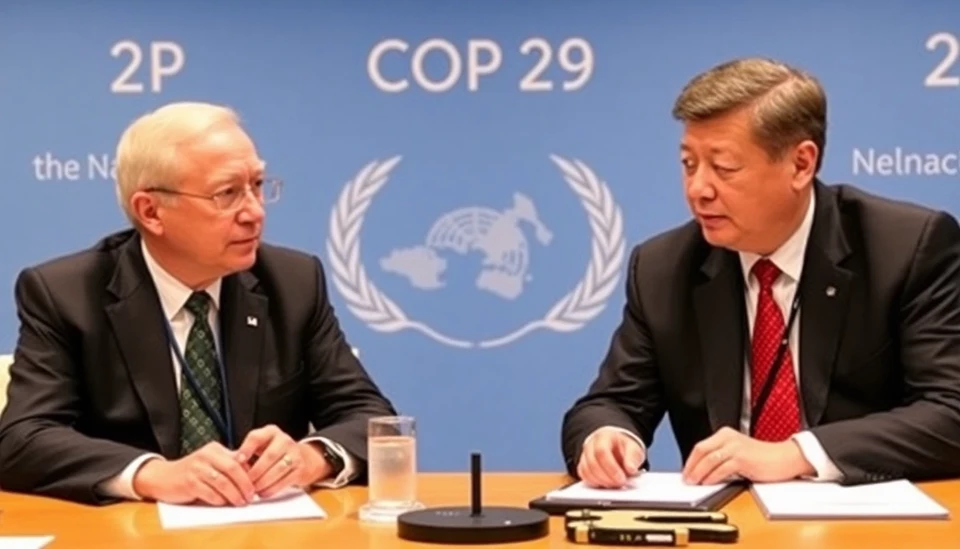
As the world gears up for the 29th Conference of the Parties (COP29) on climate change, a contentious debate has emerged surrounding China's status as a developing country. This dialogue is set to shape discussions and negotiations at the upcoming global summit, where climate action and equity are central themes.
The clash revolves around China's dual identity as an economic powerhouse and a developing nation. Critics argue that China's rapid industrialization, substantial greenhouse gas emissions, and economic growth disqualify it from special status typically afforded to developing countries. Conversely, China defends its position, emphasizing the vast disparities in income, infrastructure, and environmental policy that exist within its borders and across the globe.
Recent discussions leading up to COP29 have highlighted the need for developed nations, particularly in the West, to step up their commitment to climate financing and technology transfers. China has urged these nations to honor their pledges made in previous COP meetings to provide financial assistance to developing countries, particularly for climate resilience and adaptation efforts. This situation complicates the negotiations as China seeks to maintain its position while advocating for more support from historically significant polluters.
At COP29, the stakes are particularly high. With the deadline for reaching the Paris Agreement targets looming, the international community must address not only emissions reductions but also the inequalities inherent in climate policy. Many nations are looking to China, as the largest emitter of greenhouse gases, to play a pivotal role in reducing global emissions; however, the dialogue around its classification remains a major sticking point.
As discussions unfold, the question of accountability will be paramount: Who bears the responsibility for climate change and its impacts? Many developing nations rely on China’s economic clout and technological capabilities, hoping that the giant will lead by example in not merely expanding its portfolio but also transitioning to more sustainable practices.
Expectations for COP29 include clearer strategies for collaboration, financial commitments, and the sharing of green technologies to enable both developing and developed nations to achieve their climate goals. If countries cannot find common ground regarding definitions and responsibilities, the potential for meaningful progress at COP29 may be severely hindered.
As the conference approaches, all eyes will be on how the dialogue manages to balance the urgent need for climate action with the complexities of international classifications and economic disparities, particularly regarding one of the world’s largest economies.
The implications of this debate stretch beyond COP29, influencing global climate policy and investment trends for years to come. The outcome will not only determine how countries strategically position themselves in the climate arena but also how seriously the world will take the collective challenge of climate change moving forward.
As nations prepare to navigate these treacherous waters, the need for unity and clarity in climate action has never been more crucial. The upcoming discussions promise to be a trial not just of diplomacy, but of commitment to a sustainable future for all.
#ClimateChange #COP29 #China #DevelopingCountry #GlobalWarming #ClimateAction #Sustainability #GreenEconomy #InternationalPolicy #ClimateJustice
Author: Megan Clarke




